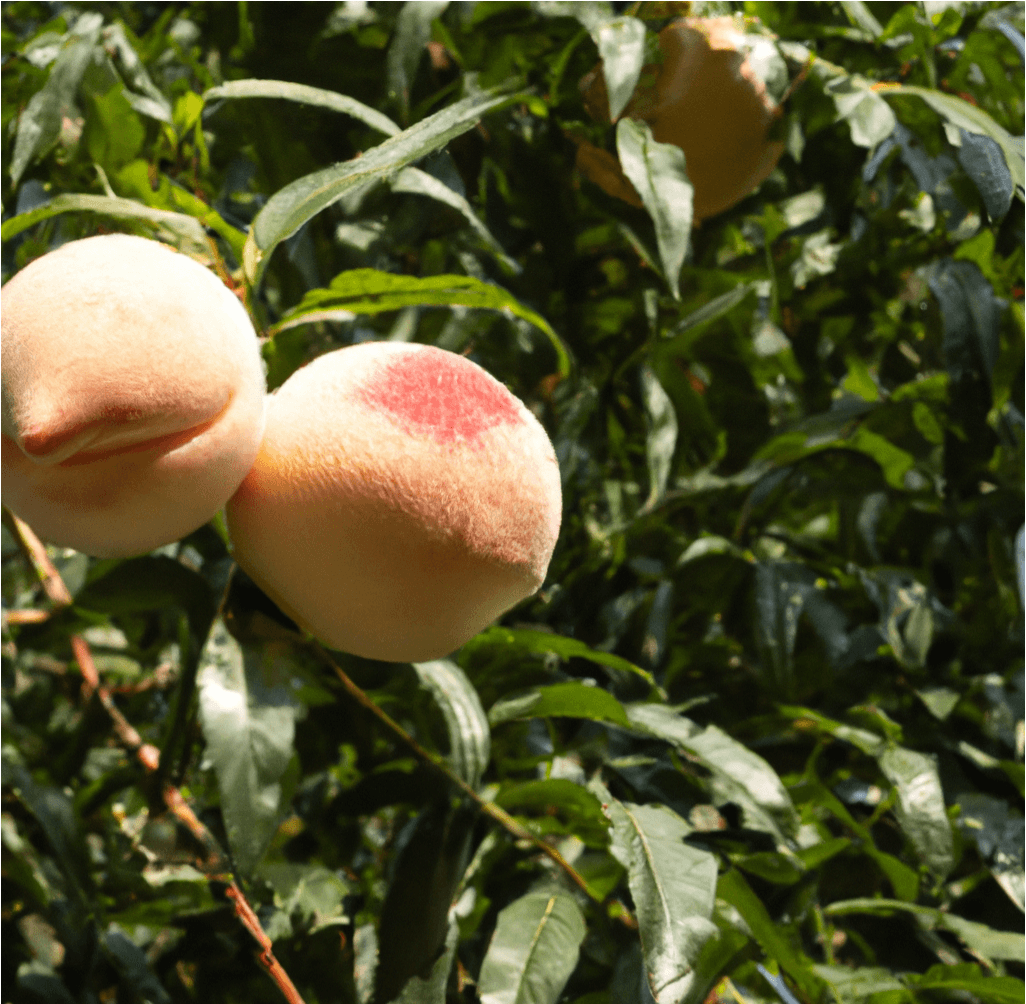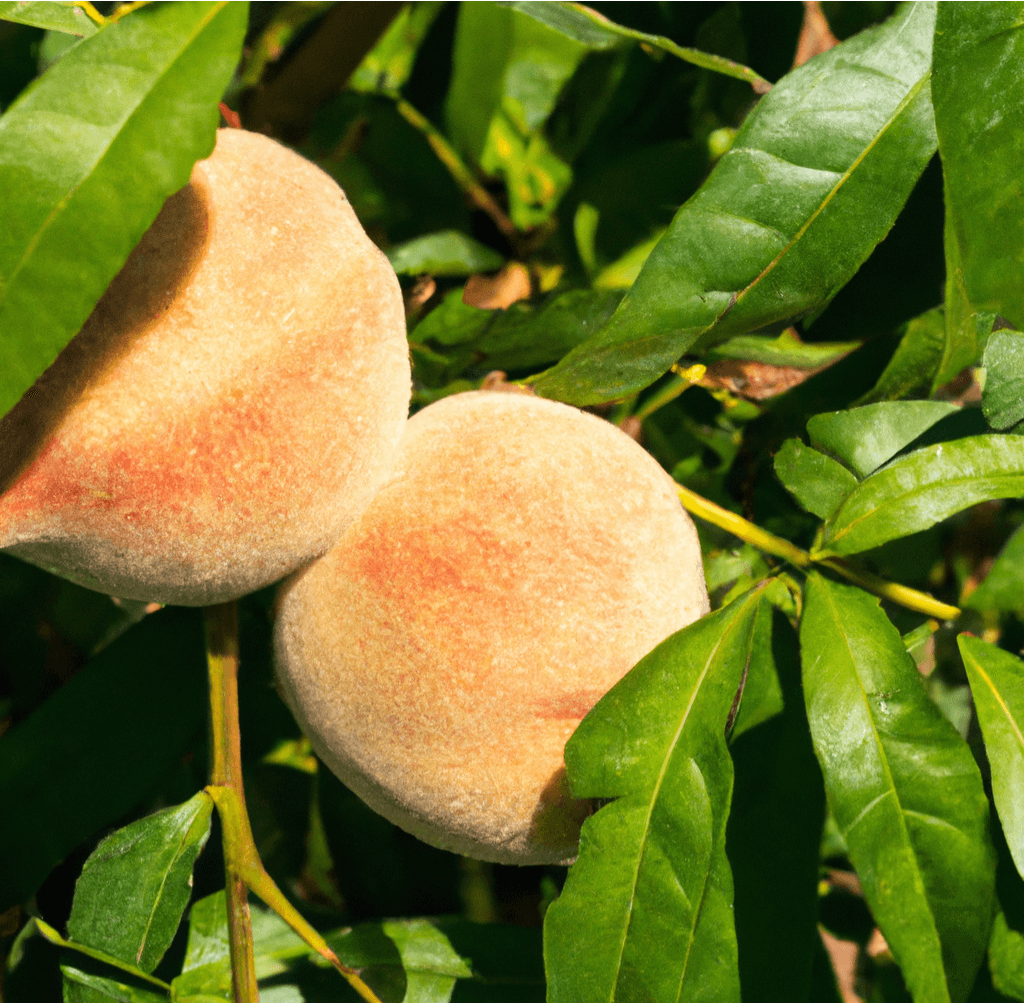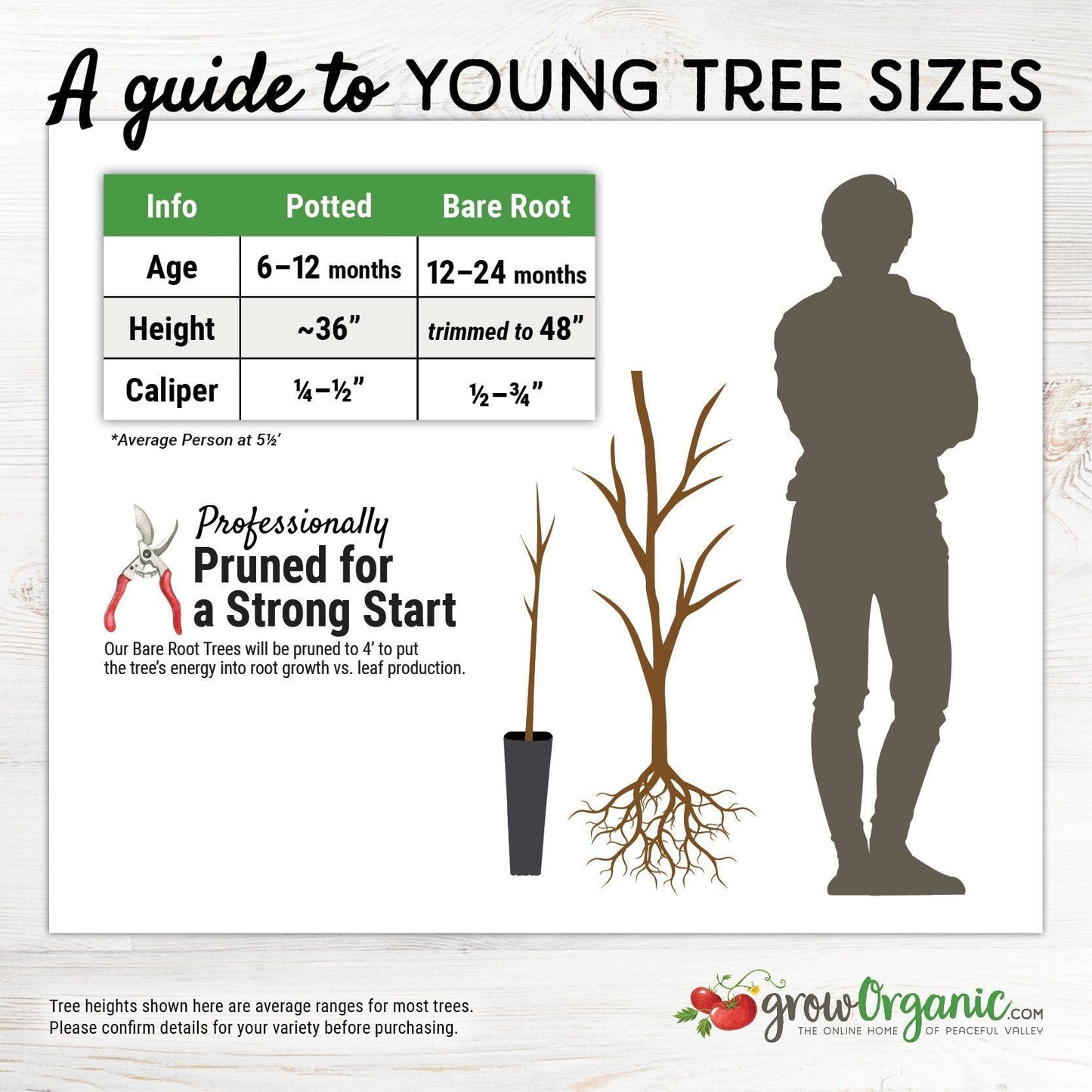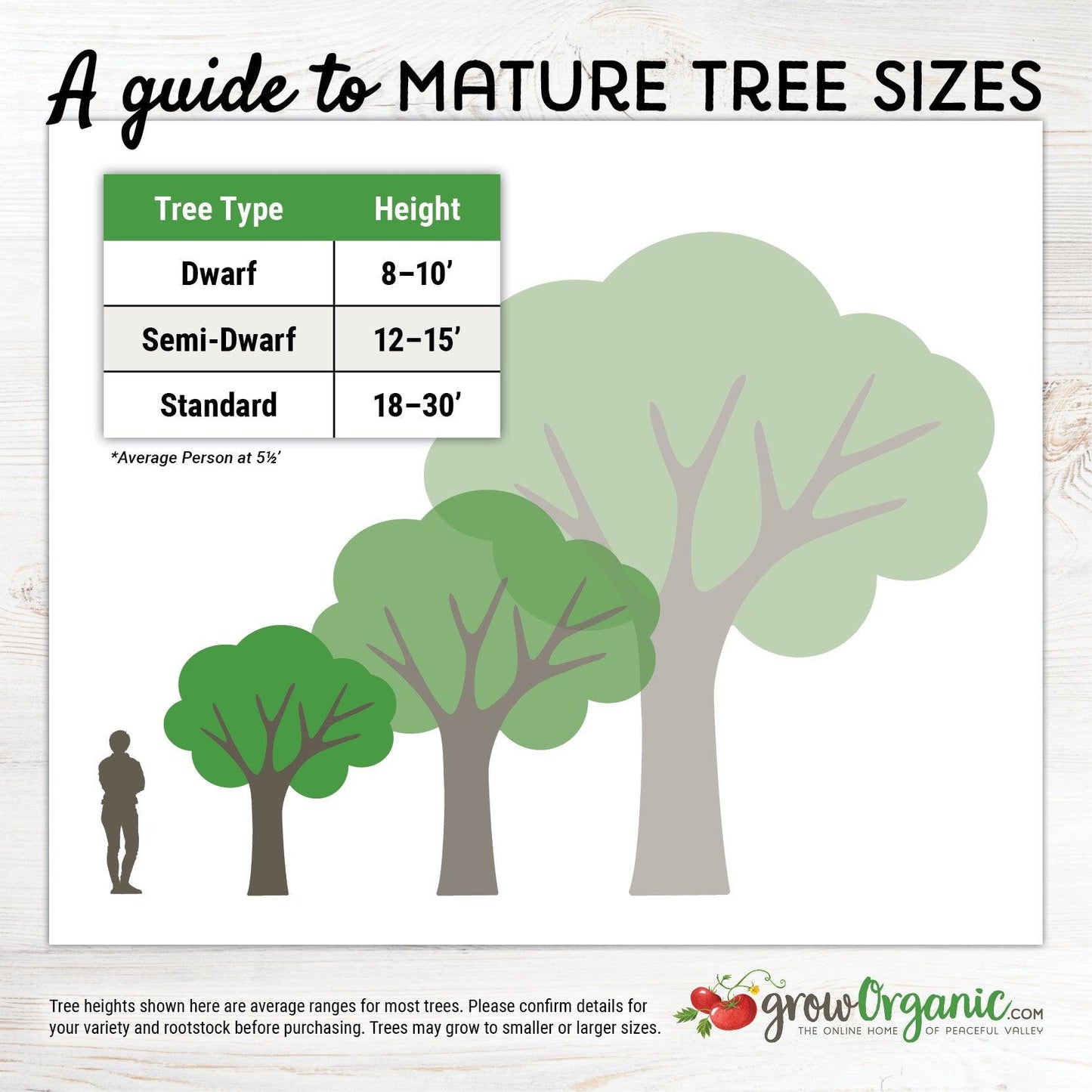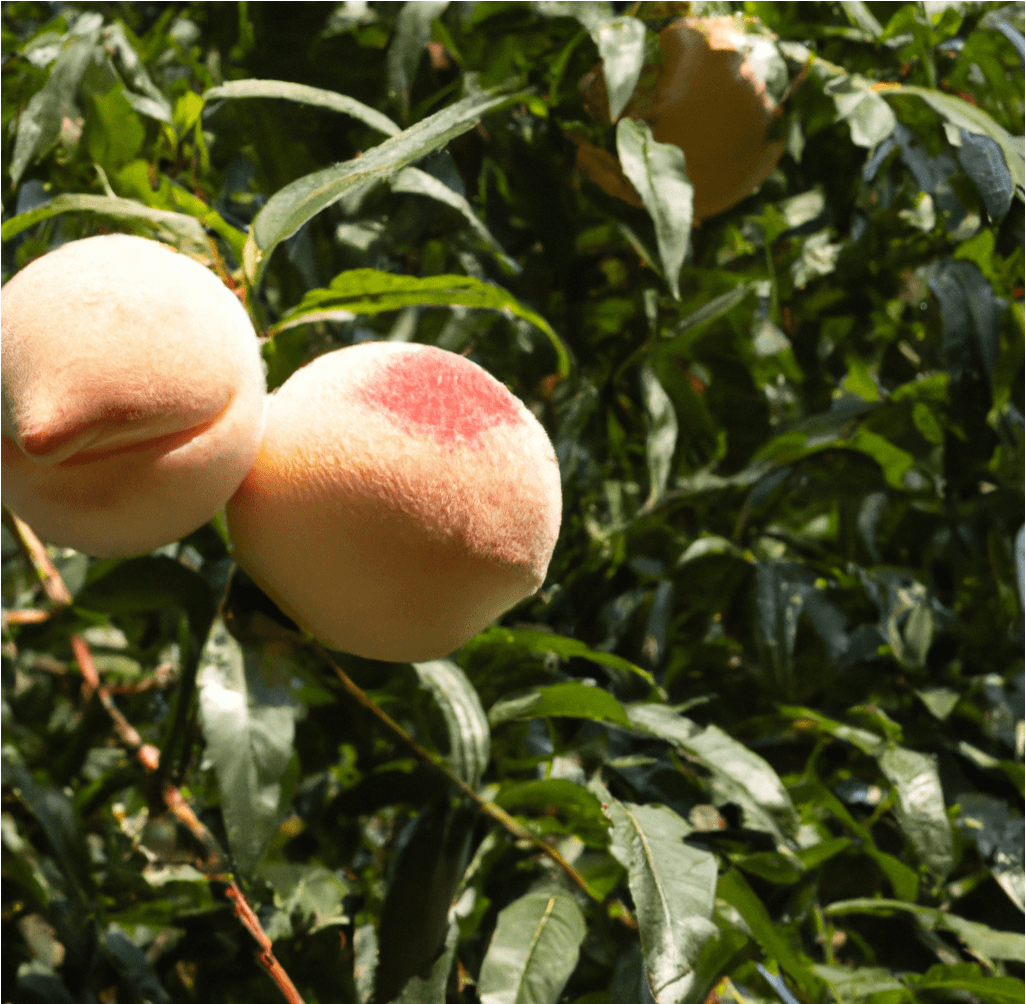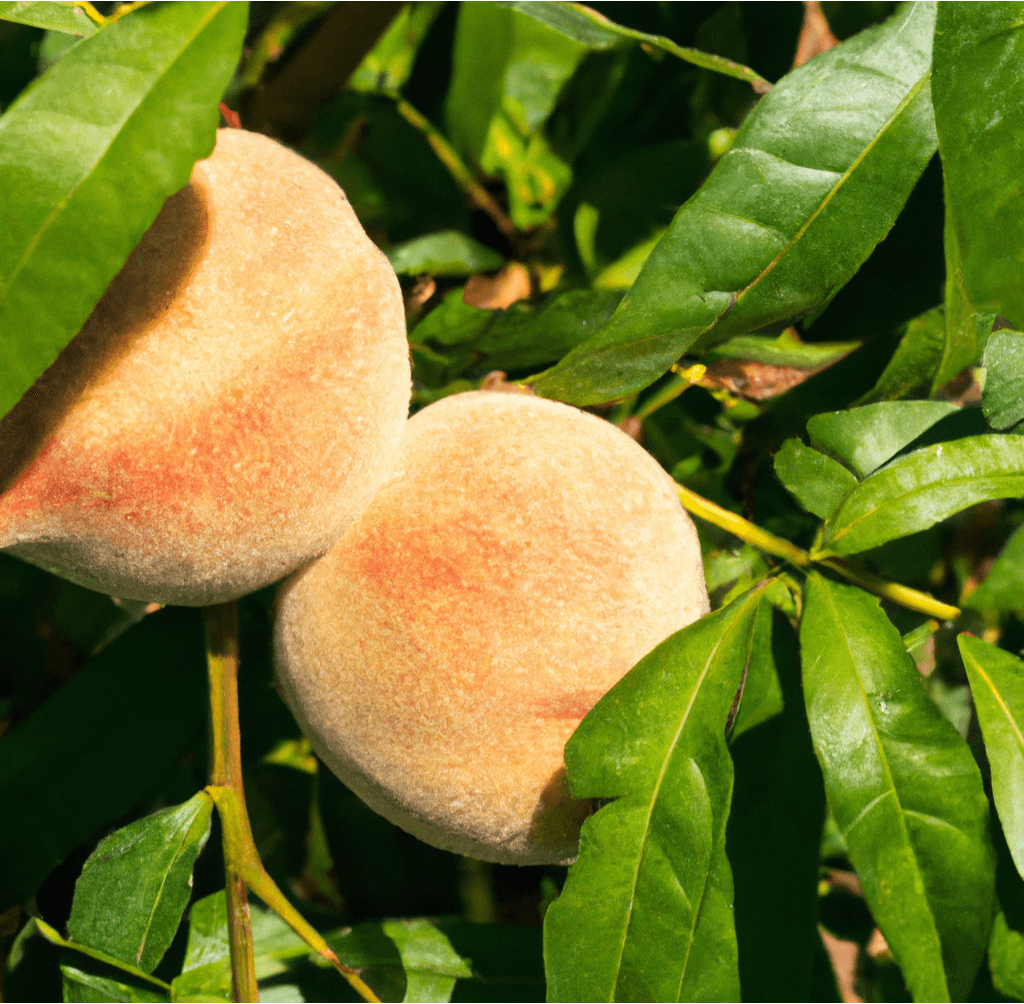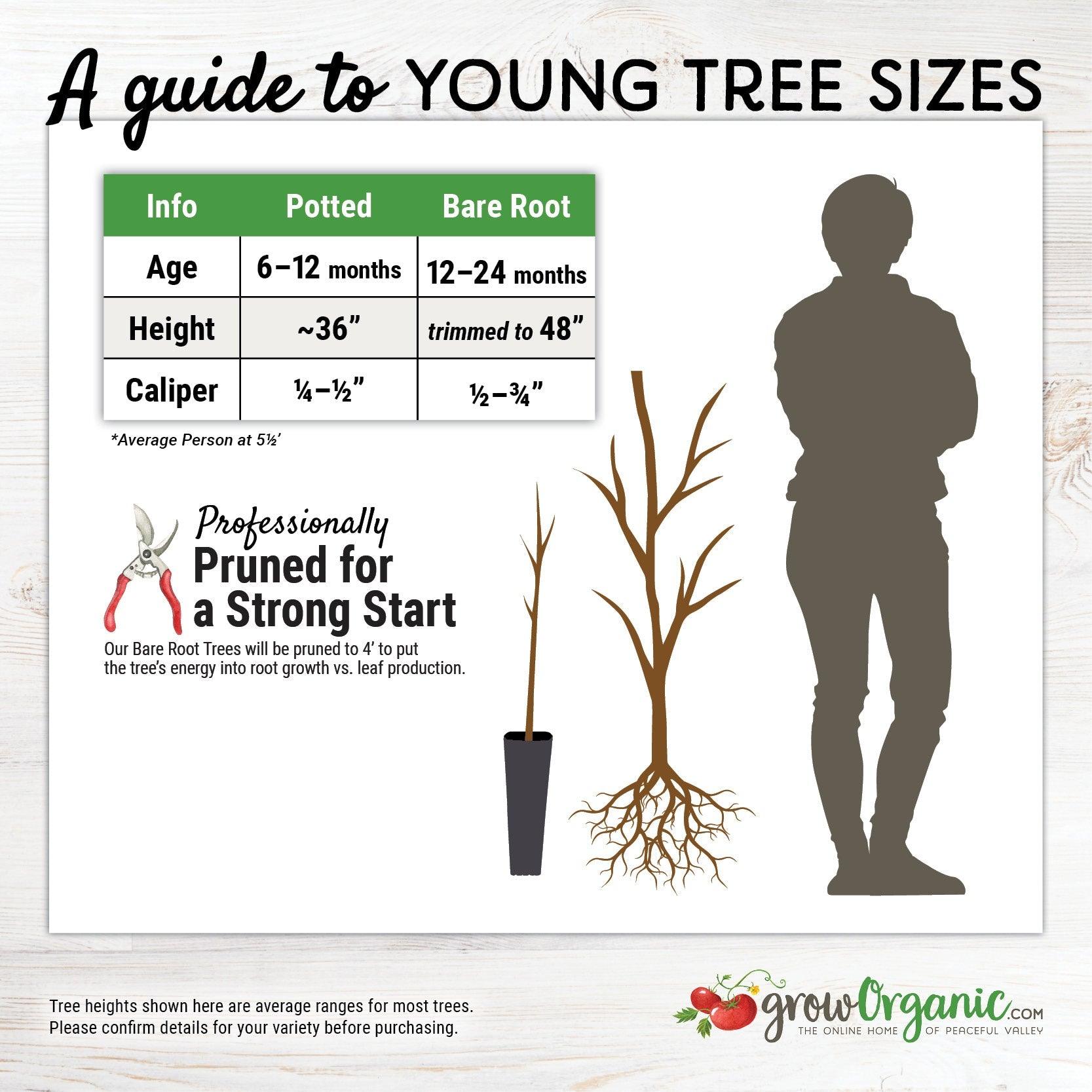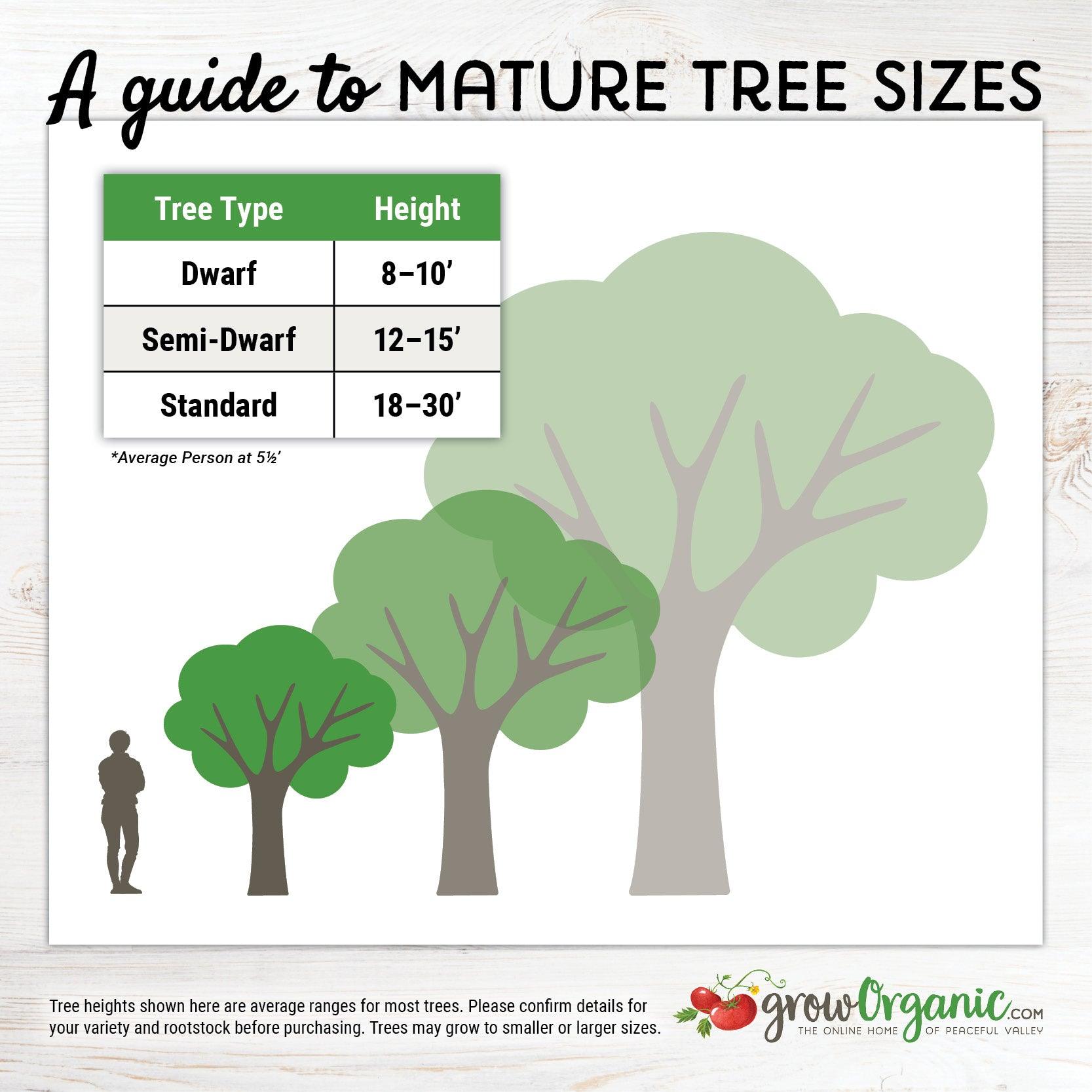Item Number: FT371P
Tropic Snow Peach Tree (Potted)
White flesh, low-acid, sweet.
The potted Tropic Snow Peach tree is a semi-dwarf sized variety that produces medium-sized, round peaches with a white, creamy flesh that is sweet and juicy. This variety is highly prized for its rich, complex flavor, which is a balance of sweet and tart notes with hints of tropical fruit. The fruit has a firm texture, making it ideal for baking, canning, or eating fresh. The Tropic Snow Peach is an excellent choice for growers in warmer climates as it is known to be highly disease-resistant.
Tropic Snow Peaches are self-fertile meaning that having another variety as a companion is not required. This tree makes an excellent pollinator for other varieties. This tree requires full sun exposure and regular watering to thrive. With proper care, it can grow up to around 15 feet tall and wide.
The Tropic Snow Peach tree is a relatively new variety that was developed by the University of Florida in the late 20th century. It is the result of cross-breeding several peach varieties to create a fruit that would perform well in Florida's warm, humid climate. One of the most interesting aspects of this variety is its name. Despite being called the Tropic Snow Peach, it is not actually native to tropical regions. The name is a reference to the fruit's snowy-white flesh, which is reminiscent of winter snow.
In terms of culinary uses, Tropic Snow Peaches are incredibly versatile. They can be eaten fresh, baked into pies, made into jams and preserves, or grilled alongside meats for a savory-sweet flavor. The fruit is also high in nutrients, including vitamin C, potassium, and fiber, making it a healthy addition to any diet.
Semi-Dwarf Tr on Krymsk86 rootstock.
The Tropic Snow Peach Tree, scientifically known as Prunus persica 'Tropic Snow,' is a delightful addition to any garden or orchard. Known for its juicy and flavorful peaches, this tree thrives in warm climates and offers a bountiful harvest of sweet, succulent fruit. In this guide, we will delve into the essential aspects of growing and caring for the Tropic Snow Peach Tree, helping you enjoy a fruitful and rewarding gardening experience.
Understanding the Tropic Snow Peach Tree:
The Tropic Snow Peach Tree is a deciduous fruit tree that belongs to the Rosaceae family. It is renowned for its vibrant pink blooms in spring, followed by an abundance of yellow-fleshed peaches in late spring to early summer. These peaches are prized for their sweet and aromatic flavor, making them ideal for fresh eating, canning, and baking.
Key Characteristics:
Fruit Variety: The Tropic Snow Peach produces medium-sized peaches with a yellow, smooth skin and a delectably sweet and juicy flesh.
Self-Pollinating: While the Tropic Snow Peach Tree is self-pollinating, planting it near other peach varieties can enhance fruit production.
Growth Habit: This tree typically reaches a mature height of 12 to 15 feet with a similar spread, forming an attractive and rounded canopy.
Growing Zones: Tropic Snow Peach Trees thrive in USDA hardiness zones 6 to 9, making them suitable for a range of warm and temperate climates.
Cultivation and Care Tips:
To ensure successful growth and a bountiful harvest of peaches, follow these essential cultivation and care guidelines:
Site Selection:
Choose a sunny location with at least 6 to 8 hours of direct sunlight daily for optimal fruit production.
Ensure well-drained soil with good air circulation to prevent waterlogged roots and fungal issues.
Planting:
Plant Tropic Snow Peach Trees in early spring when the soil has thawed and is workable.
Dig a hole that is twice as wide as the root ball and at the same depth. Place the tree in the hole, ensuring the graft union is above the soil line.
Water thoroughly after planting, and apply a layer of mulch to retain moisture and suppress weeds.
Watering:
Maintain consistent moisture levels in the soil, especially during the growing season. Deep watering is preferable to shallow, frequent irrigation.
Avoid overwatering, as soggy soil can lead to root rot.
Pruning:
Prune the tree in late winter or early spring to remove dead, diseased, or crossed branches.
Promote an open canopy to enhance air circulation and sunlight penetration.
Fertilization:
Apply a balanced, slow-release fertilizer in early spring before new growth begins. Follow recommended dosage rates based on the tree's age and size.
Pest and Disease Management:
Monitor the tree regularly for signs of pests and diseases, such as aphids, peach leaf curl, and brown rot.
Employ organic or chemical controls as needed, following recommended guidelines.
Thinning:
Thin peaches when they are about the size of a quarter to encourage larger fruit and prevent overcrowding.
Growing the Tropic Snow Peach Tree in your garden or orchard can be a rewarding endeavor, resulting in a supply of delicious and juicy peaches for your enjoyment. By providing the right conditions, care, and attention, you can ensure that your Tropic Snow Peach Tree thrives and produces an abundant harvest of sweet, succulent fruit. Whether you're a novice gardener or an experienced orchardist, the Tropic Snow Peach Tree offers a delightful and flavorful addition to your landscape.
Visit our Fruit Tree Central for a listing of all our fruit tree videos and articles.
Visit Tree Characteristics for a listing of all our fruit & nut tree growing characteristics.


Check Your Zone Compatibility:
Compatible with your zone.
Growing Zone for

Our Guarantee To You
Since 1976, we've served our customers at every stage of growing. Please contact us at any time. We are happy to support and assist you.
Shipping Information
Shipping Information
Cannot ship to the following states: HI, AK, PR, GU, VI
Shipping Weight: 2.25 lb
Dimensions: 34.0"L x 3.9"W x 3.9"H
Features
Features
- Potted
Characteristics
Characteristics
Planting & Care
Planting & Care
Useful Information
Useful Information
Guarantee
Guarantee
We guarantee the perishable items we sell to be in good, viable condition when we sell them. Perishable items include, but are not limited to, garlic bulbs, flower bulbs, seed potatoes, onion sets & transplants, potted or bare root trees, vegetable crowns, etc. If your perishable item arrives in substandard condition, take photographs and please contact us within 3 days of the purchase date (or delivery date) and we will provide you with a refund of the purchase price (excluding shipping costs), or a replacement. Accordingly, we urge you to open any boxes marked as ""Perishable"" immediately upon receiving them and inspect the shipment thoroughly (do not crack open heads of garlic, we do not accept claims on cracked garlic). Because some perishable items can deteriorate very quickly, we cannot accept any claims beyond the 3-day time frame as it becomes too difficult to determine if these items were delivered in substandard condition, or if they turned into such substandard condition because of having been improperly cared for or stored once delivered.
Share
